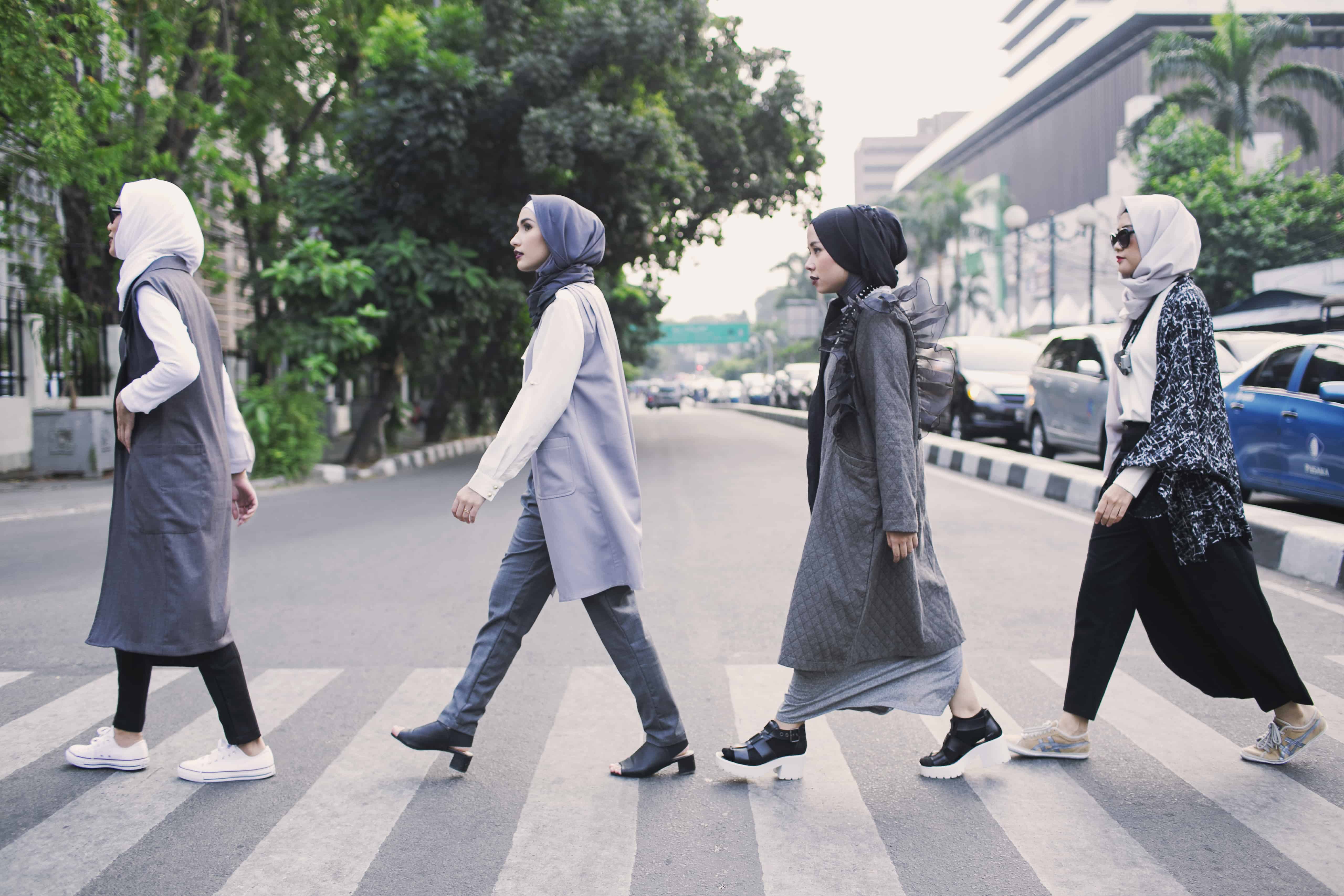Increasingly internet savvy youth to drive ‘exponential’ growth of Islamic fashion e-commerce – HijUP.com founder
Indonesia’s HijUP.com is the country’s first B2C Islamic fashion e-commerce business whose organic growth and success since 2011 finally attracted the attention of international investors in early 2015 when it won its first round of seed funding of an undisclosed amount from 500 Startups, Fenox and Skystar Capital.
Shortly after in July 2015 the company announced a second round of seven-figure seed funding from investors including the returning Fenox and 500 Startups, and Indonesia’s largest media group Emtek.
The company now has more than 200 local designers on board and competes in Indonesia with Hijabenka and Saqina. HijUP.com founder Diajeng Lestari answers Salaam Gateway’s questions.
Salaam Gateway: How much has HijUP.com changed and grown since its earliest startup days until now?
Diajeng Lestari: In 2011, Diajeng Lestari founded HijUp.com as the first Islamic fashion e-commerce business. In the first year, HijUp.com only had 20 designers/brands as ‘tenants’. Today, in 2015 HijUp.com has more than 200 designers from Indonesia, and our revenue doubles every year. We started in a 3 x 3 sqm room, and now we have a three-storey building.
Salaam Gateway: What has been HijUP.com’s biggest challenge and how have you overcome that challenge?
Diajeng Lestari: Besides changing the shopping habits of Indonesians from offline to online and building customer's trust in online shopping, the other challenge for us is how to encourage the designers/tenants to be more productive in producing good quality products, and to become the reliable hub for both domestic and international customers.
Winning market share is also our focus. We try, learn and make improvements to make HijUp.com better every day.
Salaam Gateway: Now that you’ve received your second round of seed funding, what can we expect from HijUP.com in the near- and mid-term?
Diajeng Lestari: The money will be allocated specifically to expand our marketing strategy, infrastructure improvements, and human resources.
Salaam Gateway: How will Islamic or modest fashion progress in the next five years?
Diajeng Lestari: The industry’s future is very promising. In Indonesia the middle class will grow to 135 million people in the next five years. Muslim fashion trends are also growing, there are a lot of influential Muslim fashion designers and the internet savvy market will make the growth exponential.

Salaam Gateway: How would you describe Indonesia’s e-commerce business landscape? What are its opportunities in the near- and mid-term?
Diajeng Lestari: Indonesia's e-commerce business is very ‘raw’, or new, not like in China or U.S. where the sector is already mature. As for the positive side or opportunities in the near and mid-term, we believe that we can be the market leader if we start now before the market becomes too ‘noisy’. But we have to move fast, and grow faster.
Salaam Gateway: How much of those opportunities would rely on local skills and capital and how much foreign investments in terms of skills and capital are still required?
Diajeng Lestari: As a start up In Indonesia, we face these two issues; first, local skills and second, capital.
For skills, we search campus to campus, selecting the best talent, and it's working. Indonesia needs more talent in IT and that's why it's very good to invest in education. Capital is also very important for startup growth, but now in Indonesia, there is limited Venture Capital because the industry is still very new. That's why we also seek foreign investment alongside local capital.
Salaam Gateway: There’s that cliché that Indonesia is Asia’s ‘sleeping giant’. How has the economic and business climate shifted under the new government led by President Joko Widodo and what do you see as the biggest changes that will really push Indonesia’s digital economy forward in the next five years?
Diajeng Lestari: I personally see that there is a change in the creative industry. Jokowi has given the new generation the spirit to "wake up" and do something together for Indonesia. The new generation of Indonesia is the biggest power to push Indonesia’s digital economy in the next five years. There is a huge youth population who are creative, have buying power and are internet savvy. So really, the market is ready.
To win the market and be a very competitive business we need the key to work as an "efficiency driven" economy. We need more higher education and training (invest in new talent), goods and market efficiency (invest in infrastructure for manufacturing), labour market efficiency (invest in technology), and financial market development (access to capital).
Salaam Gateway: For those interested in Indonesia’s digital economy, what would you tell them they’d need the most to succeed?
Diajeng Lestari: The most important thing is you have to know your market well. In different countries you will face different market behaviour. For example in China, Alibaba has beaten eBay. It's not just how much money you have, but it’s most important how you know your market and execute the strategy well. For all that you need a strong team.
Salaam Gateway: Who do YOU wear and which fashion designers do you look to?
Diajeng Lestari: I like all HijUp.com collection. I'm inspired by some designers, but my favourites are Dian Pelangi and Ria Miranda.
HijUP.COM |
|
| When was HijUP.com founded? | 1 Aug, 2011 |
| Who owns the company? | Diajeng Lestari |
| Where is the company based? | Jakarta, Indonesia |
| How many people does the company employ? | Around 80 |
| Who designs for HijUP.com? | B2C e-commerce that sells products from over 200 Indonesian designers |
| Where are Hijup.com's sellers' clothes manufactured? | Indonesia |
| What is the typical profile of the HijUP.com customer? | Middle-class women |
| What's your all-time best-selling item? | Inner hijab -- we call it ciput ninja in Indonesia |
© Copyright SalaamGateway.com 2015
